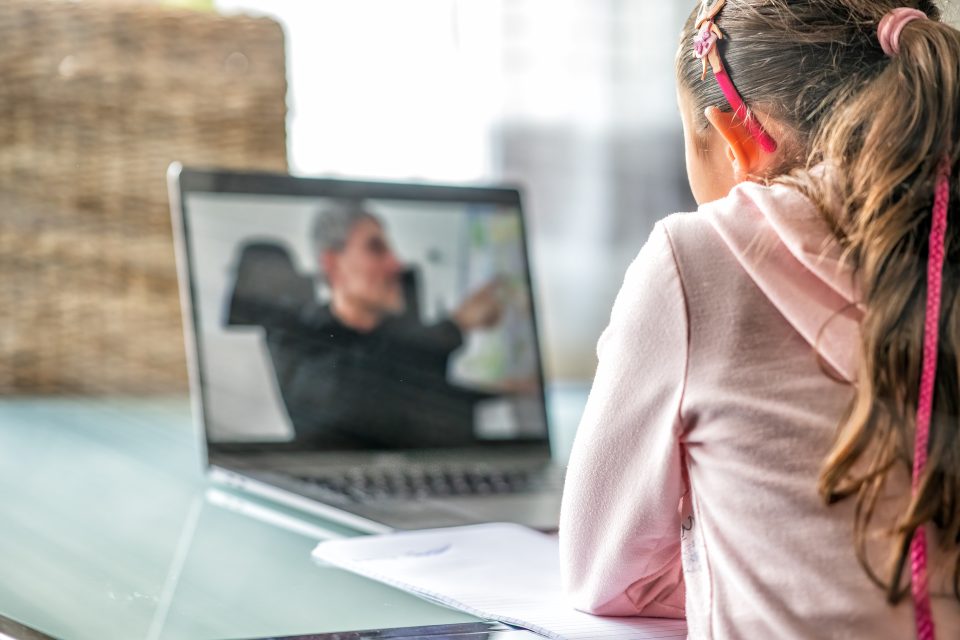Ever since classrooms shifted to computers and smartphones, our attitude to work and study has been showing consistent variations.
Admit the fact that we were not ready for such an apocalyptic unleashing of home learning conundrum. Though this tough phase has been sticky for only two years, it has managed to delve deep into everyone’s psyche, and students are probably the hardest hit in terms of growing up, learning new skills and being assessed. To the extent that it is able to wipe out the sweet memories of mingling, playing and interacting in various other ways with classmates and teachers.
Even the lucky ones who had opportunities of returning to school had to be content with a turn-taking system with numerable restrictions in place. As we talk about this, Omicron is still dancing out there and many schools are still cautious about returning to a full-fledged daily lesson scenario.
Emotional wellbeing is an expression you may have heard being used in the many months when we were gripped by fear and anxiety. Here in Indonesia, elsewhere in Asia and other parts of the world, educators, universities, and NGOs have been offering workshops and webinars in order to provide support to the workforce during these difficult times. Students have been receiving this too, in the forms of school-conducted workshops and counselling sessions. There is definitely a huge difference between adults and children when we discuss the effects of home-bound activities and the impact of lockdown situations. Common factors such as laziness and feeling of lack of freedom apart, both view and perceive the pandemic blues in different ways.
Students probably started feeling the burden well after many adults started struggling with the situation. The role of higher responsibility that rests with the adults and the seemingly easier ways of dealing with things that characterise students’ age could have been factors that caused the difference in this timeline. Nevertheless, it seems that after about two years of being on Zoom and MS Teams, the bigger losers are students as theirs is a time to get into the life of things, to experience the wide world in a miniature form inside classrooms and to practise skills with hands-on activities.
As we talk about reopening schools, there are certain things students can do to better prepare themselves for a strong comeback and achieve a stable mental to make the re-transition smooth.


Stop Counting
In the early days of COVID-19, everyone developed a habit of counting the number of positive cases on a daily basis. The media still keep their routine of publishing the numbers, and one of the best ways to not get affected by it is to stop obsessively checking the statistics. Read the news, get a clear idea of the situation worldwide and in your country, but do not count the numbers daily. This should help let you off the COVID hook as should an educated individual expects to do. This can also serve as one of the first steps toward moving toward more informed and wiser approaches to dealing with a difficult situation.
UNICEF remarks that: while it is important to acknowledge the scale of what is happening globally, make sure to emphasise all the efforts made and precautions taken to reduce risks in the school reopening plans’ in its advice to teachers. The keywords are “efforts” and “precautions to reduce risks”.
Get into Action
You will return to schools following strict safety procedures under guidance from your teachers. While it is still necessary to follow rules and regulations, there are many things you can still do at home. It is time to deck the classroom boards and walls that have been left colourless for a prolonged time. Spend a weekend doing some work on a flip chart, drawing or writing down something fun. Or, draw some colourful pictures related to some of the subjects. Haven’t you been missing these activities, sitting together on the classroom floor in groups? Well, those days will return, but do this at home, and bring them to school when it reopens.
Rein in the Gadgets
You have been in front of screens throughout this online season, adding extra pressure on your eyes that was inevitable. If you have not managed to reduce the use of your smartphones for other purposes such as browsing, chatting, watching films and playing games, make sure to do that with a self-promise at this moment. Your eyes need longevity, as does your body. Surveys indicate that wearing spectacles among Gen-Z students is much higher compared to people who did their schooling until around the end of the 90s. This has direct connections to the spread and popularity of smartphones in the noughties. So, next time you beam the bright light of your phone up close to your face in the dark bedroom before dozing off, think.
Write, not Type
You have been typing your way through assignments and assessments all this while. When was the last time you held a pen in your hands? Remember that schools have not completely switched over to the online system, and will not do so in future. Though it has been quite some time we have been in the typing practice, it was the call of a natural force. When we get back, we will get back to all the things we had been doing in the pre-pandemic times. So, get ready for the final examinations and international assessments such as IB and Cambridge. Let the pen and paper stage a comeback too.




